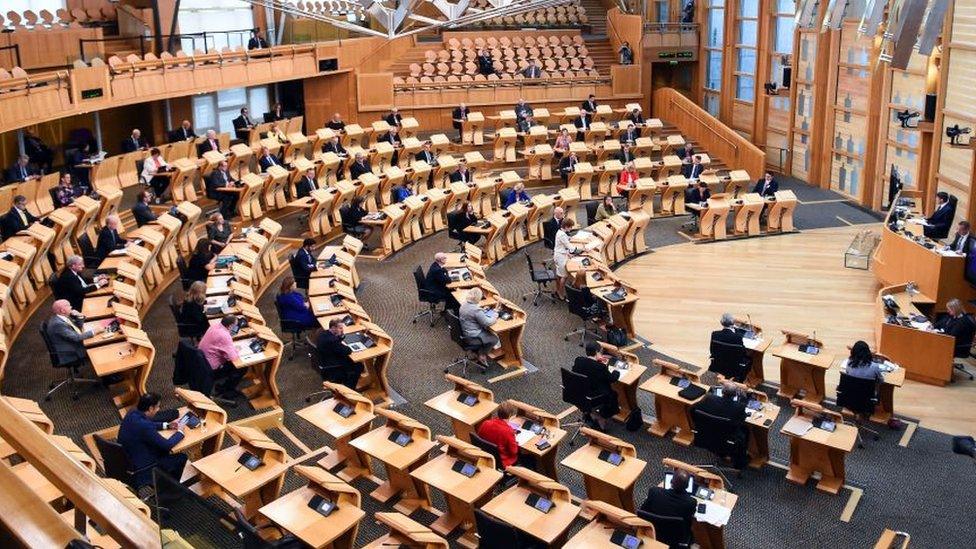'Serious failings' at watchdog overseeing MSPs conduct
- Published

There are "serious failings" in the way the body which investigates complaints about the behaviour of MSPs and councillors is run, auditors have said.
The Commissioner for Ethical Standards in Public Life in Scotland deals with hundreds of complaints against elected members each year.
But Audit Scotland found a "disturbing" number of failings at the watchdog, with too many submissions dismissed.
It said every probe run since August 2020 should be independently reviewed.
The acting Ethical Standards Commissioner had raised concerns of his own in the body's annual report, external, saying there had been high staff turnover and a breakdown of good governance at a time of rising complaints.
Ian Bruce said he and his team were "absolutely committed" to earning the trust of the public.
The Ethical Standards Commissioner is an independent regulator which handles complaints against MSPs and councillors. It is funded by the Scottish Parliament, and reports about MSPs are sent back to Holyrood's standards committee.
The commissioner, Caroline Anderson, has been on "extended leave" since March 2021, with Mr Bruce standing in since.
In October, he wrote a scathing report warning of low morale, high staff turnover, a "significant backlog" of complaints about MSPs, and a "deterioration of good governance".
He warned that these factors had created a "significant risk that we would have insufficient capacity and capability to carry out our functions".
This has now been underlined by a report by Auditor General Stephen Boyle, who said it was "disturbing to see so many failings in an organisation, not least because it deals directly with concerns raised by members of the public".
He said there was an "overarching risk" that the public would lose trust in the watchdog's ability to properly investigate complaints.
Allow X content?
This article contains content provided by X. We ask for your permission before anything is loaded, as they may be using cookies and other technologies. You may want to read X’s cookie policy, external and privacy policy, external before accepting. To view this content choose ‘accept and continue’.
According to the Audit Scotland report, an internal review had found that the majority of rejected complaints should in fact have been investigated, or at least looked at more closely.
The commissioner's office also obtained legal advice which suggested that the way investigations were being carried out did not comply with the laws underpinning the watchdog's powers.
The report also said there had been a sharp increase in complaints against councillors and board members which had not been pursued - from 43% of complaints in 2016-17 to 84% 2020-21 - but that no explanation could be provided because so many staff had left over this period.
The auditors recommended that the commissioner's office fill staff vacancies "as a matter of priority", and to draw up a manual for investigations "to ensure consistency and compliance across all cases".
And they said all decisions and investigations carried out since August 2020 should be reviewed by an external investigator, while acknowledging that this was "a significant task with funding and staffing implications".
In 2020-21, the office received a total of 301 complaints against councillors - bundled into 165 cases - and 764 against MSPs, although a large number of these related to a single issue, with only 55 cases recorded.
Mr Bruce welcomed the recommendations, and said "many changes" had already been made.
He said: "I and the entire team are dedicated to working in accordance with our new plans and the new values that we have adopted as an organisation.
"It is incumbent on me and on all of the staff to earn the trust of the public and the many stakeholder organisations that rely on our effective operation as an office. We are absolutely committed to doing so."